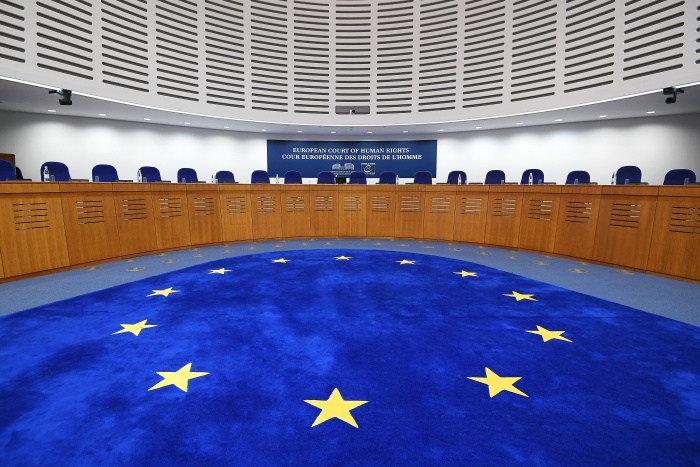The European Court of Human Rights (ECtHR) has ruled that Turkey violated the right to liberty and security and freedom of assembly and association of 22 trade union members who were arrested on the night of March 27, 2012 while traveling by bus from Adana to Ankara to take part in a demonstration.
The decision of the court regarding the application filed on Oct. 12, 2012, in which 22 members of the Eğitim-Sen trade union argued that their detention had been without any legal basis, was released on Tuesday.
Judgment Alici and Others v. Turkey – Identity check used as pretext to prevent applicants from attending demonstrationhttps://t.co/MTjJzk739G#ECHR #CEDH #ECHRpress pic.twitter.com/pTEYimdDWy
— ECHR CEDH (@ECHR_CEDH) May 24, 2022
According to the ECtHR, the applicants were arrested while traveling from Adana to Ankara to take part in a demonstration, which was organized by trade unions against a bill being debated in parliament to amend the law on public-sector trade unions, and incurred an administrative fine for withholding their identities from the police who stopped their bus. Having been arrested at 11:45 p.m. on March 27, 2012, the applicants were released around 2:50 p.m. the next day.
“Although the applicants had been taken to the police station to be identified … the main reason for arresting and detaining the applicants had been to prevent them from traveling to Ankara and thus from participating in the demonstrations which had been declared unlawful,” the court said.
The actions of the public authorities amounted to an interference with the applicants’ right to freedom of assembly, the ECtHR said, adding that the applicants’ arrest and continued detention also violated Article 5 § 1 (right to liberty and security) of the European Convention on Human Rights.
“As the applicants had not lodged their claims for just satisfaction within the time allowed, the Court determined that no award should be made under that head,” the court further said.
Meanwhile, Turkish media on Wednesday reported that Turkey’s Constitutional Court ruled in favor of Aysel Tuğluk, a former lawmaker from the pro-Kurdish Peoples’ Democratic Party (HDP), in an application in which she claimed an investigation that was launched into her for attending a demonstration in the Nusaybin district of Mardin in 2010 was a violation of her rights.
Referring to Article 34 of the constitution, the court unanimously ruled that the investigation violated Tuğluk’s right to hold peaceful meetings and marches without prior permission, ordering the Turkish government to pay her TL 13,500 ($827) in damages.
Tuğluk was arrested on Dec. 29, 2016, when she was deputy co-chair of the HDP, along with seven other Kurdish opposition politicians. She was sentenced to 10 years in prison on charges of serving as an executive of a terrorist organization and taking orders from Abdullah Öcalan, the jailed leader of the outlawed Kurdistan Workers’ Party (PKK), an armed group listed as a terrorist organization by Turkey, the European Union and the US.
Forty-three Turkish and international NGOs, bar associations and human rights associations in January urged the United Nations to take “urgent” action for the release of Tuğluk, who suffers from dementia, in a letter titled “Urgent Action: Imminent risk to health and life of ill prisoner Aysel Tuğluk.”
The letter was sent to the UN Special Rapporteur on Torture and Other Cruel, Inhuman or Degrading Treatment or Punishment, the UN Special Rapporteur on the Independence of Judges and Lawyers, the UN Special Rapporteur on the Situation of Human Rights Defenders, the UN Special Rapporteur on the Right of Everyone to the Enjoyment of the Highest Attainable Standard of Physical and Mental Health, the UN Special Rapporteur on Minority Issues and the Working Group on Arbitrary Detention.

